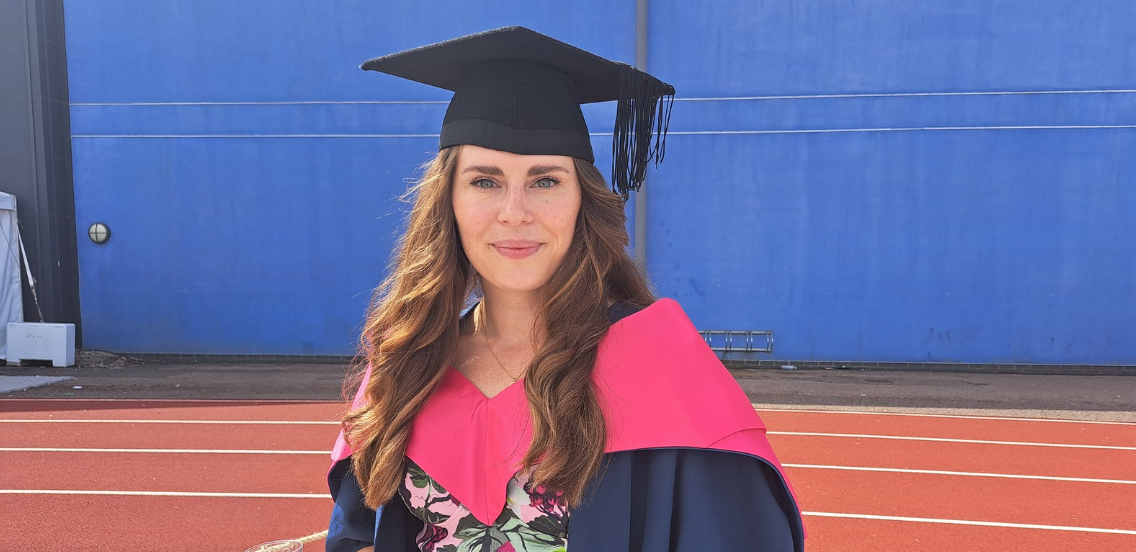UEA’s grant and funding success – May 2025
By: Communications

Using behavioural insights to design mechanisms for determining director rewards
Project lead: Dr David Gibbs-Kneller
David Gibbs-Kneller, Associate Professor in Private Law, has been awarded £3,900 from the Society of Legal Scholars' 'Research Activity Fund'.
David will conduct a lab-based experiment using both law and behavioural economics theory to test the stark presumption that underpins the arm’s length model (ALM) for rewarding directors. The presumption that underpins the model is that if directors reward themselves, it is “obvious” this would increase agency costs, as they have a “natural” incentive to be paid more and work less.
Both the limitations of ALM and the insights from behavioural economics suggest that the benefits of ALM are not as clear-cut as presumed. Social norms make the benefits of ALM less “obvious”, while they also suggest a self-reward model (SRM) might be judged as “better”.
Agri-Food Net Zero Early Career Board appointment
Project lead: Dr Matt Heaton
Dr Heaton, Research Associate at UEA's School of Global Development, has been appointed to the Early Career Researcher Board of the AFN+ Network (Agri-Food for Net Zero Network+).
The AFN+ Network contains a directory of thousands of members, working across UK agriculture, industry, research and policy to reduce emissions to achieve net zero by 2050. Matt will help lead events, review emerging strategies and support policy engagement.
The role involves the critical review and synthesis of UK net zero activities. Matt will also receive mentorship from AFN researchers on influencing policy and hopes to use the position to connect more researchers, policymakers and stakeholders to DEV, as part of wider UK net zero efforts. Learn more via the AFN Network+ website.
Composite Phase Change Material for latent-heat thermal energy storage applications
Project lead: Dr Stefano Landini
Dr Stefano Landini (Lecturer in Mechanical Engineering in the School of Engineering, Mathematics and Physics) has secured a £29,946 Royal Society Research Grant to pioneer a novel thermal energy storage solution using enhanced composite Phase Change Materials (PCMs).
The project aims to address heating and cooling challenges in off-grid communities by improving the thermal performance of PCMs through innovative integration of metal foams and conductive shape-stabilising additives.
This work, aimed at developing scalable, sustainable alternatives to polluting energy sources, will support future applications in renewable energy systems, especially in low-resource conditions.
Sexual corruption and entrepreneurship: A pilot study of interventions to prevent sexual exploitation of female entrepreneurs
Project lead: Dr Oana Borcan
Partners: Dublin City University, University College Dublin, Norbert Zongo University Burkina Faso, Empow'her, Innovations for Poverty Action.
The School of Economics at UEA was awarded 73,000 USD by The Abdul Latif Jameel Poverty Action Lab to lead research on gender-based sexual violence as a barrier to entrepreneurship in Burkina Faso.
Funded through the Humanitarian Protection Initiative, by FCDO, the project is a collaboration between Dr Oana Borcan (ECO UEA), Dr Doris Aja-Eke (University College Dublin), Prof Robert Gillanders (Dublin City University), and Prof Eugenie Maiga (Norbert Zongo University), and NGOs Empow’her and Innovations for Poverty Action.
They will conduct a pilot evaluation of an advanced entrepreneurship training for women, examining how the training may influence the experiences of sexual victimisation in women’s entrepreneurial journeys, with particular focus on women internally displaced by conflict.
Bureaucracy, opacity, border violence: (Un)doing secrecy in EU migration management
Project lead: Dr Luděk Stavinoha
Dr Luděk Stavinoha has received £57,826 by the Independent Social Research Foundation (ISRF), to research the politics of secrecy in the everyday workings of opaque EU border bureaucracies that lie at the centre of efforts to deter, criminalise, and expel ‘undesirable’ migrant populations.
Mobilising the EU ‘freedom of Information’ mechanism as an innovative methodological tool to probe seemingly mundane bureaucratic practices, the project will seek to unravel how secrecy surrounding routine border violence is (un)done at the level of the everyday. How are traces of violence against people on the move recorded within bureaucratic paper trails and made publicly (in)visible?
Arginine catabolism supports resistance to zinc intoxication in bacteria
Project lead: Dr Matthew Sullivan
Matt Sullivan (BIO) has been awarded a grant for £700,000 for a new fundamental bioscience project, to study how pathogenic bacteria can survive in the human body and resist the immune system.
Funded by BBSRC, Matt's project will use cutting edge molecular approaches in microbiology to study Strep B (Group B Streptococcus), a major pathogen of mothers, babies and the elderly. The work will examine how the bacterium breaks down arginine, an important amino acid and building block for proteins, to carve a niche for itself during colonisation and establishment of disease.
The project will contribute to future strategies aimed at perturbing the impact of Strep B infections on human health.
Extended reality neurorehabilitation of spatial neglect and related disorders after brain injury
Project lead: Dr Stephanie Rossit
Partners: Aarhus University, Denmark (PI); other co-applicants across 20 countries (examples only) including KU Leuven, UCLouvain, University of Antwerp, McGill University, University of Tubingen, University of Iceland, University of Milano-Bicocca, Utrecht University and many more.
Dr Stephanie Rossit from the School of Psychology has been awarded a prestigious COST Action grant, led by Aarhus University, with a total budget of €575,000. This international award addresses the urgent need to improve health outcomes and daily functioning for individuals with acquired brain injuries (ABI).
The project brings together a large multidisciplinary network of leading researchers, clinicians, technology developers, patients, and caregivers from 20 countries (e.g. Denmark, UK, Belgium, Canada, Netherlands, USA).
Their goal is to advance personalised and cost-effective neurorehabilitation solutions using extended reality (XR) technologies to rehabilitate spatial neglect (loss of awareness of one side of space) and related disorders.
CIVICare: Covid and Influenza Integrated Vaccination service in care homes (bid development)
Project lead: Dr Amrish Patel
Partners: University of Leicester, University of Sheffield, University of Exeter
A team led by Dr Amrish Patel (ECO) has been awarded £19,000 from NHS Norfolk and Waveney Integrated Care Board's Research Capability Funding programme.
Dr Patel's team will engage with health and social care professionals, and care home residents and their families to better understand challenges faced in vaccinating care home residents for COVID and influenza.
This project will inform the development of a larger National Institute of Health Research bid to test a solution to the challenges identified.
Related Articles

A graduate’s apprenticeship journey from ‘imposter’ to award‑winning strategic leader
For National Apprenticeship Week 2026, UEA is shining a spotlight on graduate Anna Tanner, whose experience on UEA’s apprenticeship and MBA programmes helped to transform her confidence and leadership style.
Read more
UEA launches study after supplement shows promise in professional racing drivers
Researchers at the University of East Anglia (UEA) are launching a new study to see whether American ginseng extract could boost brain health.
Read more
UEA to receive share of £15 million funding boost for region
University of East Anglia researchers have been awarded a share of £15.3 million to tackle real-world health and care challenges across the region and beyond.
Read more